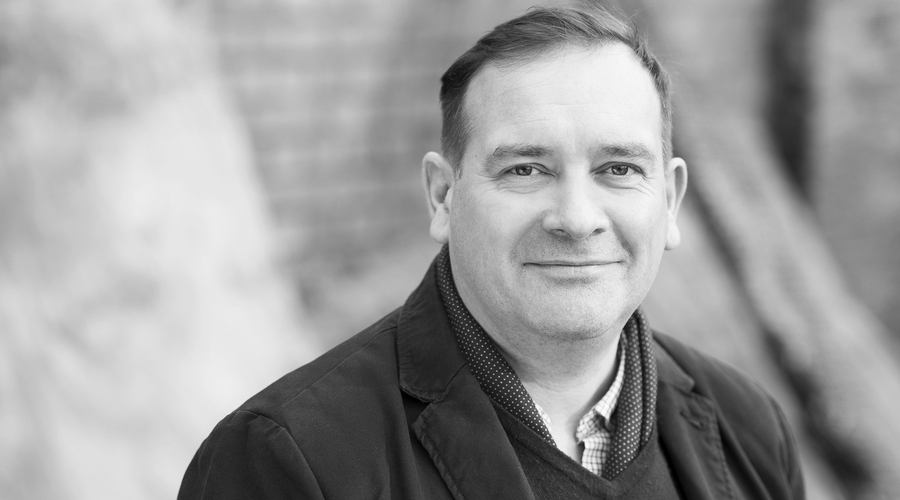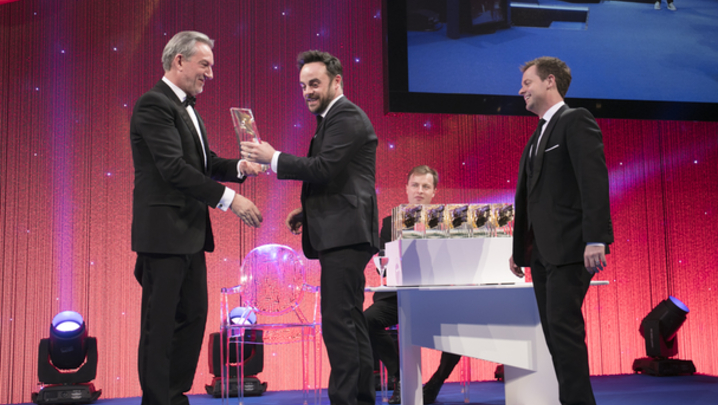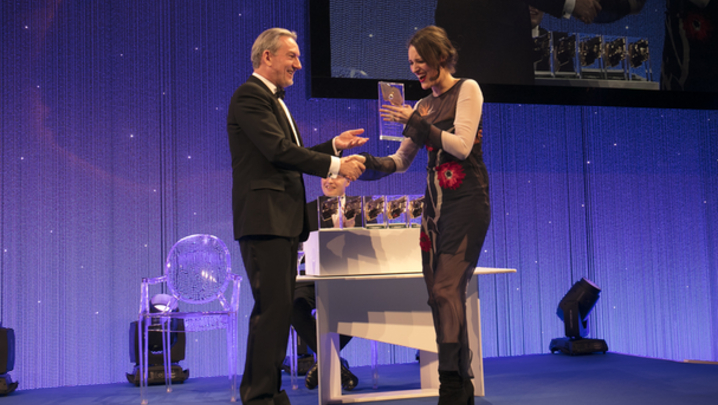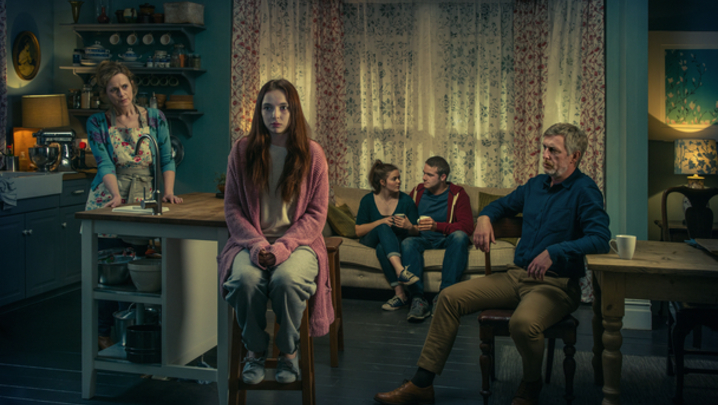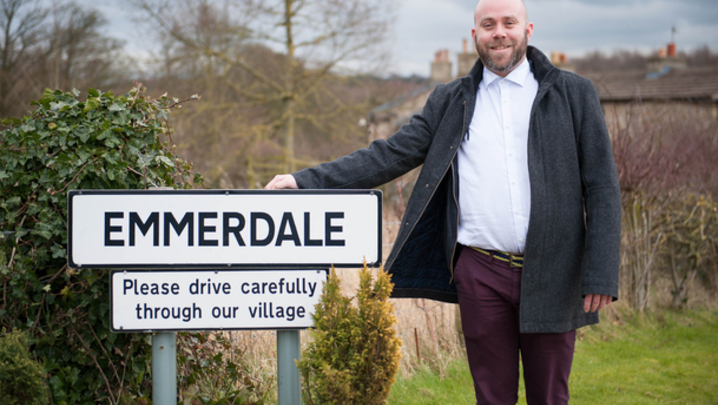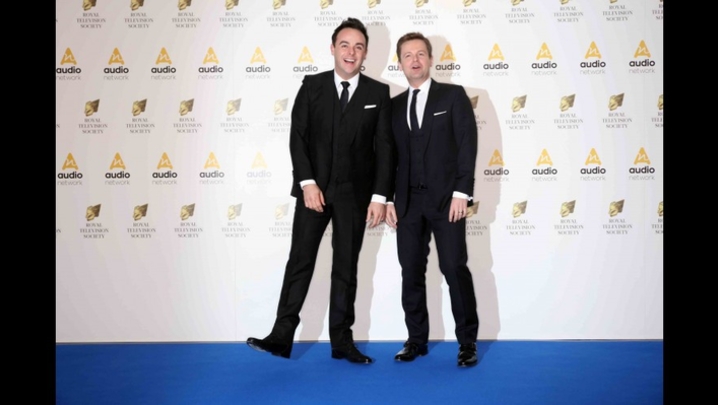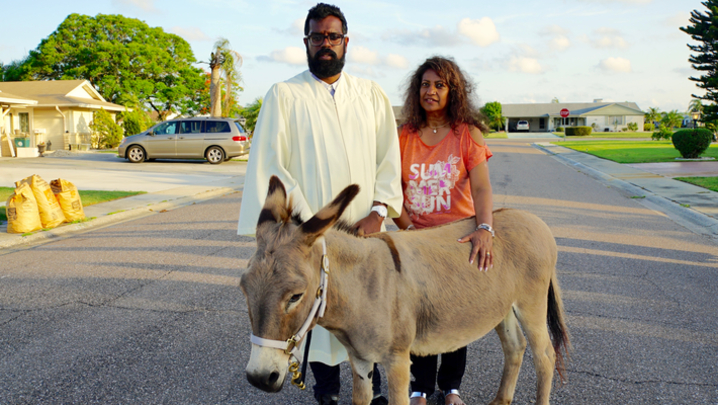“It’s a bit like going back to your mum's bedroom which you recognise immediately but the wallpaper’s different.”
Sean O’Connor insists that not much has changed since he returned to EastEnders as executive producer last summer, after an 11-year absence from the soap.
“All these shows renew themselves…I think they are sort of like chameleons, they change for the time that they are written in and are performed in but fundamentally they remain the same.”
EastEnders has been nominated in the Soap and Continuing Drama category of the RTS Programme Awards 2017 alongside Emmerdale and Hollyoaks.
“A soap story really has the potential to really get under peoples' skin and into peoples' lives," he says of the genre.
O’Connor began working for the BBC in 1999 as a producer on the Radio 4 soap opera The Archers and then went on to work at EastEnders from 2001 to 2003 running the story department, returning for episodes in 2005.
He has returned to both soaps in recent years, rejoining EastEnders last year after a three year run as editor of The Archers.
“There’s something in the DNA of both of these shows that is brilliant. It's genius, and that’s why they’ve survived for so long.”
Some of the most memorable moments in soap history were conceived during O’Connor’s career, such as the EastEnders Kat and Zoe Slater ‘you ain't my mother’ bombshell, and the Little Mo and Trevor domestic violence storyline.
More recently O’Connor tackled domestic abuse in another storyline on The Archers involving two of the central characters, Helen and Rob Titchener.
“The reason I went on and did Helen and Rob in The Archers is because I think we didn’t do that story justice well enough on Eastenders…I think we learned from the mistake of making that story quite sensational.”
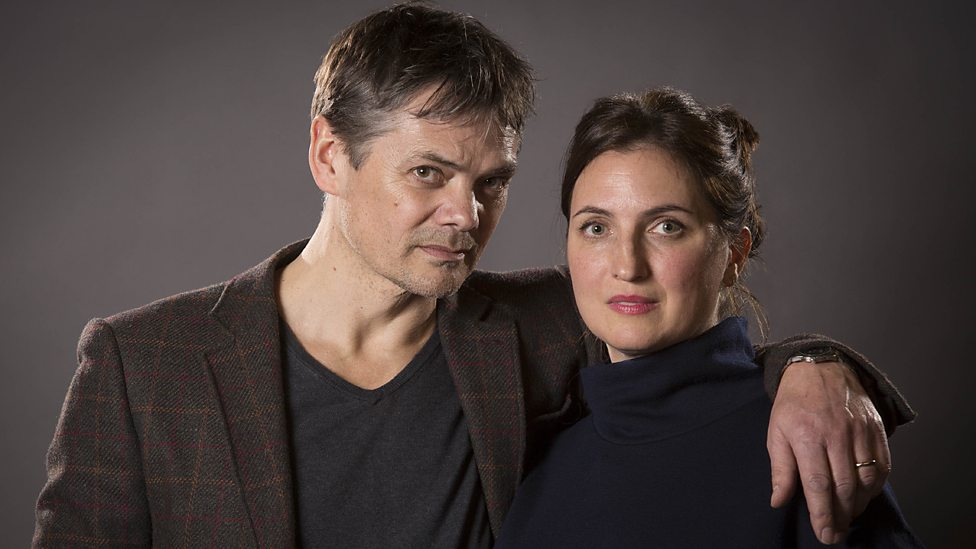
The dramatic storyline created a national debate, making headline news and encouraged many victims of domestic abuse to seek help.
“[It was an] amazing thing to be involved in” he reflected proudly. “It made a massive difference, calls to women’s charities and helplines went up, donations to charities went through the roof…we were invited to the Houses of Parliament to address peers and MPs about domestic violence and women’s issues.”
The realistic depiction of domestic abuse was praised by charities and raised over £100,000 for Refuge, a domestic violence charity, who worked closely with the soap on the issue.
"At the end, the MPs said what can we do to help you [Women's Aid and Refuge], so we have all these MPs captive in a room asking you how to change things...it's extraordinary."
“if you’ve got that power, you want to use it in a sort of Reithian way: you want to inform and educate as well as entertain your audience.”
Are there any storylines coming up on EastEnders that he thinks will have a public reaction of that magnitude?
“We’re doing a story now about Ian [Beale] and diabetes…so we’re getting a major character at 7.30, four times a week talking about this manageable illness, this disease, and it’s not who shot Phil but it will have the seismic social effect," he blieves.
“[It shows] the power of soap opera…they’re more than characters, they’re your mates.”
It’s clear the changes in the world have had an impact on the direction O’Connor wants to take the show.
With recent stories such as Walford’s community working together to save lives in a bus crash, inspired by true events in Walthamstow, EastEnders is pushing a more honest portrayal of London life, and not just melodramatic plots.
“I’m interested in the idea of community in a world that is quite fractured at the moment, whether that be [by] Brexit or Trump…I think the idea of community is being questioned, maybe even threatened, and all soaps are about community.”
“[EastEnders'] not realistic, it’s always been a fantasy, a fiction of what community is but in that fantasy or fiction there is a deeper truth, and it’s to do with the robustness of the format."
Last year saw the departure of three favourite characters: the emotional suicide of EastEnders veteran Peggy Mitchell (Dame Barbara Windsor) and the dramatic deaths of sisters Ronnie and Roxy Mitchell on New Years Eve, played by Samantha Womack and Rita Simons.
O’Connor says that the dramatic departure was fitting for sisters, “[they were] not the sort of characters that would leave in the back of a taxi…we wanted to give them an operatic ending.”
As well as overseeing character exits, he has brought back some old characters back into the new mix.
“We are bringing back those core characters rather than those big central ones…those characters that tended to be slightly more eccentric.”
Speaking of the return of Michelle Fowler, who made a dramatic entrance on Christmas Eve, O’Connor said, “she is one of the iconic, original characters of the show.”
He comments that actress Jenna Russell had the seal of approval from Susan Tully, who played the character between 1985-1995, and has been “incredible” taking over the role.
“We [had] the choice that we never investigate that rich, fertile character again or we get someone else to do it and that’s exactly what we’ve done.”
When asked about what it is about the soap that has kept it's loyal fan base, O'Connor mentions it is a question that the late co-creator of EastEnders Julia Smith used to hate answering but summarised perfectly.
“She said the show is ‘London Now’ and [that] is such a brilliant concept…the fact that London now is so complex and so moving and always changing…it gives you endless fuel for story and characters.”
He concluded, “we are trying to harness what 'London Now' is.”

